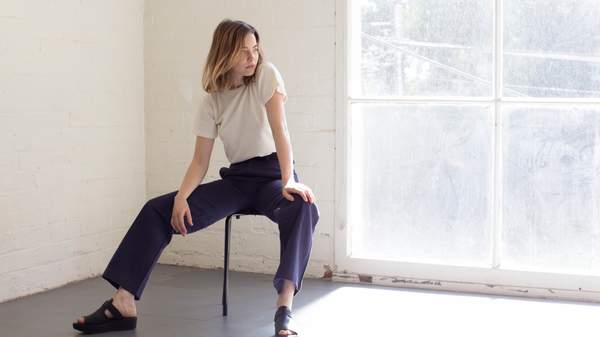Overview
In 2013, a factory collapsed in Dhaka, Bangladesh, killing approximately 1130 workers. The building, named Rana Plaza, housed five garment factories and more than 3000 workers, all working under inhumane and unsafe conditions. Ever since, ethical clothing has been a big question mark hanging over the fashion industry.
Living wage, fair labour conditions, sustainability, tracing raw materials back to their source, corporate transparency and accountability all blend to make one complicated and bleak tapestry. But each year since the accident, more and more is done to help consumers make more sophisticated and informed ethical choices. There's even an app to steer you in the right direction. It can be devastating when your favourite brands don't pass the ethics muster — but don't worry, you won't have to start sewing all your own clothes just yet. There are still some fashion companies, both large and small, that are trying to be ethical — and they're doing a damn good job at it. Here are our top five local picks.
ETIKO
Etiko is the poster child of ethical fashion. The Melbourne-based brand has been trading since 2005 and are certified fair-trade and halal. They consistently blitz the competition whenever ethical ratings are assessed, but their products remain quite reasonably priced (a basic tee will set you back $30 and a pair of Converse-esque canvas sneakers cost around $90). Although the pervading stereotype is that ethical/fair-trade/handmade products are expensive, it's not surprising that Etiko can deliver good quality, ethical garments. International aid and development org Baptist World Aid Australia's 2016 fashion report estimates that to achieve a living wage (that is, an income necessary for a worker to meet their basic needs) in Bangladesh, the base cost of a t-shirt would go from 66 cents to around a dollar. We can definitely afford that.
AUDREY BLUE
Audrey Blue is up there with Etiko as a shining example of sustainable, ethical fashion. The company exclusively uses Global Organic Textile Standard certified cotton from India. Like Etiko, they're all over every stage of production, from manufacturing all the way down to raw inputs, and can prove a living wage is paid to workers at both stages. They also spruik a more sustainable approach to consuming fashion, encouraging their customers to buy classic, flattering, low-maintenance pieces designed to last for many seasons instead of throwing them away for more current styles (a fab piece of style advice, as far as we're concerned).
STUDIO MÜCKE
Studio MüCKE is the project of RMIT student Ellie Mücke that aims to solve the problems she observed while coming up in the fashion world. What she saw was wasteful attitudes towards materials, and seasonal fashion trends creating a cycle where perfectly good garments get replaced every few months. Studio MüCKE aims to address the implicit engineered redundancy in fashion by using upcycled and recycled materials and running their studio on 100 percent renewable energy. Every piece is made in-house, meaning it's produced both ethically and locally. They've also adopted a practice of customising and designing for the user to avoid wastage (because we all know the feeling of turfing something because it looked great in-store but terrifying in the harsh light of our bathroom).
KITSU
One of the factors to consider when trying to buy ethical is where the products are being made. The closer to home an item is produced, the fewer kilometres it has to travel to make you look fab. So the fact that Kitsu jewellery is not just insanely cute but also handcrafted in Melbourne is music to our squiggly, pastel-styled ears. The label produces a range of sweet jewellery, including loopy earrings and marbled rings, bracelets and necklaces. Cute, weird, ethical and supporting local artisans? Yes puh-lease.
VEGE THREADS
Vege Threads is living, breathing, thriving proof that there's a big, hungry market for ethical fashion in Melbourne. They employ 100 percent Australian production, use locally-sourced and environmentally sound dyes and fabrics, have accreditation from Ethical Clothing Australia, donate a portion of all proceeds to a Balinese charity, and pack their products in recycled materials too. And if that isn't enough for you, their collections are unbearably chic (but still classic), trans-seasonal and perfect for layering so you won't have to pack anything away for winter. Yes, yes, a thousand times yes — thank you Vege Threads for proving that it can be done without compromises.
HONOURABLE MENTIONS
There are a few big retailers that, despite how time-consuming and complicated it may be, still manage to stay ethical. It may surprise and delight you that a mammoth company like Zara (owned by parent company Inditex) is one of these retailers — and, in fact, since the 2013 Rana Plaza disaster and implementation of the Bangladeshi fire and building safety Accord agreement, they've been making strides to improve their ethics rating. They score well on labour conditions, guaranteeing living wage, and have signed up to the ACT agreement and the Better Cotton Initiative (both aimed at improving conditions for workers at various stages of production). However, according to the Good On You ethical fashion app, they don't do so well on environmental policies.
If you're looking to shop Australian brands, Cue is certified by Ethical Clothing Australia for their Australian-made range of clothes, and Cotton On do alright as well. They were signatories of the previously mentioned Accord agreement, Good On You rate their labour policies as "robust" and, and 2016 fashion report commends them for the traceability of their materials and awarded an overall grade of B+ in 2015. It's a solid start and hopefully, with consumers demanding more transparency, these brands will continue to improve.
Top image: Vege Threads.
Want to shop more sustainably as well? Find out where to buy more Australian sustainable fashion here.
